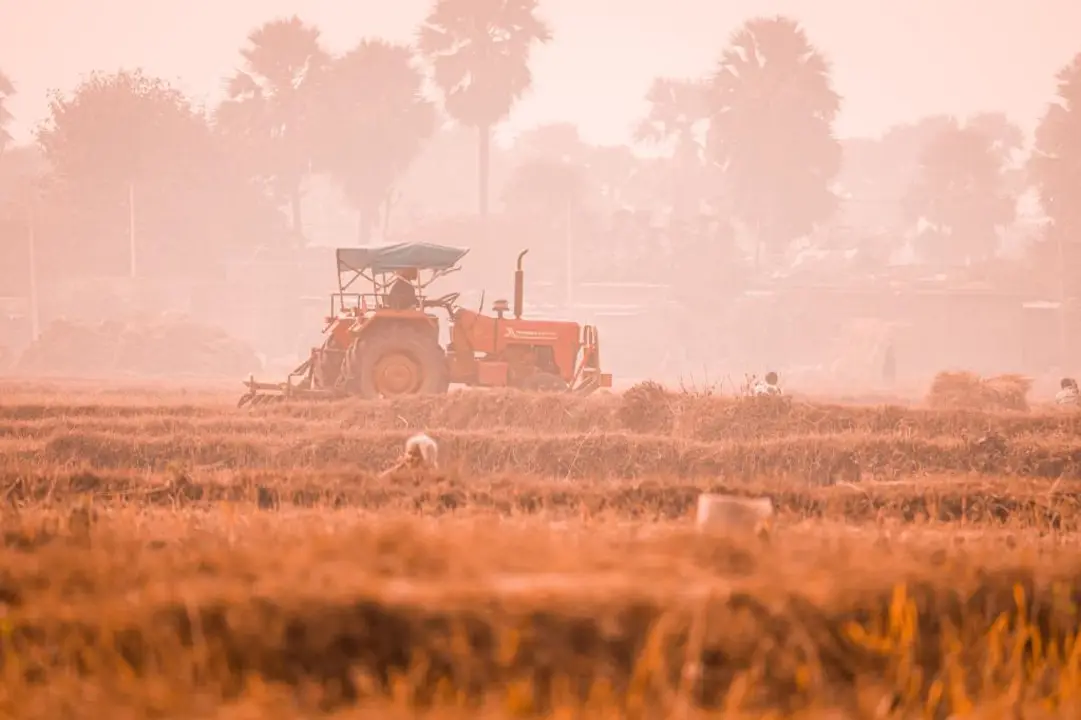The Importance of Agriculture in the Indian Economy
India is primarily an agrarian economy, with agriculture being the backbone of the country’s economic progress. The sector plays a crucial role in ensuring food security, providing employment opportunities, and contributing to the overall GDP. In this article, we will discuss the extent of dependency of the Indian economy on agriculture by looking at various aspects such as its contribution to GDP, employment generation, and the challenges faced by the sector.
Agriculture's Contribution to India's GDP
As per the Central Statistics Office (CSO), agriculture and allied sectors contribute around 16% to the Gross Domestic Product (GDP) of India. This indicates that agriculture is a significant contributor to the country's economy. The sector has shown steady growth over the years, with the production of food grains increasing from 50 million tons in 1950-51 to over 275 million tons in 2016-17. Furthermore, agriculture is the primary source of livelihood for over 58% of the rural population, thereby contributing significantly to their income and sustenance.
Employment Generation through Agriculture
Agriculture is the largest employer in India, providing employment to more than 50% of the country's workforce. It is a significant source of employment for rural households, especially for small and marginal farmers who depend on agriculture for their subsistence. The sector also generates indirect employment through various agro-based industries such as food processing, dairy, textile, and leather industries. The growth of these industries not only contributes to the overall economic growth but also creates job opportunities for millions of people living in rural areas.
Food Security and the Role of Agriculture
India, being home to more than 1.3 billion people, faces the challenge of ensuring food security for its vast population. Agriculture plays a vital role in ensuring food security through the production of food grains, pulses, fruits, and vegetables. It also contributes to the availability, accessibility, and affordability of food items, thereby influencing the nutritional status of the population. The Green Revolution in the 1960s and 1970s led to a significant increase in agricultural production, helping India achieve self-sufficiency in food production and making it one of the leading producers of food grains globally.
Challenges Faced by the Agriculture Sector
Despite its significant contributions, the agriculture sector in India faces numerous challenges. Some of the major challenges include declining productivity and profitability, lack of access to credit and modern technology, inadequate irrigation facilities, and climate change-induced risks. Moreover, small and marginal farmers face difficulties in accessing markets and getting remunerative prices for their produce. These challenges have a direct impact on the overall performance of the agriculture sector and, subsequently, the Indian economy.
Government Initiatives to Strengthen Agriculture
The government of India has taken several initiatives to strengthen the agriculture sector and make it more resilient to the challenges it faces. Some of the key initiatives include the Pradhan Mantri Fasal Bima Yojana (PMFBY) for crop insurance, the Pradhan Mantri Krishi Sinchayee Yojana (PMKSY) for irrigation and water management, and the National Agriculture Market (e-NAM) for better price discovery and market access. These initiatives aim to increase agricultural productivity, improve income for farmers, and ensure food security for the population.
Conclusion: The Dependency of the Indian Economy on Agriculture
Based on the discussion above, it is evident that the Indian economy is heavily dependent on agriculture. The sector contributes significantly to the country's GDP, generates employment for millions of people, and ensures food security for its vast population. However, the agriculture sector faces several challenges that need to be addressed to strengthen its role in the economy. The government's initiatives are a step in the right direction, but there is a need for more concerted efforts to address the structural issues and enhance the resilience of the sector.
